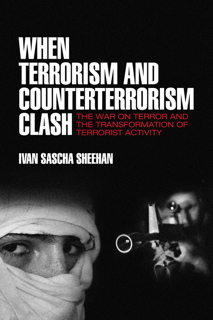 #Media / #News / #Scholarship / #Inquiries / #UB
#Media / #News / #Scholarship / #Inquiries / #UB
Digest of Middle East Studies (DOMES); Copyright © Wiley / Policy Studies Organization; Fall 2014; Vol. 23, Issue 2; Pgs. 385-403
Dr. Ivan Sascha Sheehan is published in the fall 2014 issue of the Digest of Middle East Studies, a peer-reviewed journal published by Wiley-Blackwell on behalf of the Policy Studies Organization. Dr. Sheehan’s latest study — What Is “Regime Change From Within?” Unpacking the Concept in the Context of Iran — clarifies the contested concept of regime change from within via Tehran’s organized opposition and makes contributions to the concept’s formation to increase its policy relevance and classificatory significance.
Abstract: The use of the phrase “regime change from within” has surged in recent years in media, policy, and opposition discourse, especially in relation to the Islamic Republic of Iran. But what does “regime change from within” actually mean? Is it just a script to encourage the aspirations of a people, or can it be defined with more specificity? This article argues that to be of value as a concept and the basis for articulate policy, “regime change from within” needs to be better defined. To bring greater clarity to the term, the article tries to unpack the concept by disaggregating it into three analytically separable problem components: the “regime,” “change,” and “from within.” Drawing on the case of Iran, I argue that although most of the current debate around the concept is on the “from within” component, the definitional choices that need more discussion are the “regime” and “change” aspects of the phrase.
[The concept of] ‘regime change from within’ has been employed for an array of very disparate processes — as a holder for democracy promotion efforts from outside a country as well as indigenous efforts that exclude outside intervention, to highlight the need for radical change and more vaguely to call for continuous reform. But to be of value as a concept and the basis for articulate policy, a term needs to have some degree of specificity of meaning, some shared consensus. Otherwise, it just becomes a proverbial “you know it when you see it” concept that is difficult to distinguish from other types of political phenomena.
To address this gap and bring greater clarity to the concept, this article looks at some of the definitional choices that need to be addressed to come to a consensus on the meaning of “regime change from within.” Using the case of the Islamic Republic of Iran, I show how different decisions about what constitutes “regime change from within” could lead to very different conceptualizations in empirical cases…
![]() / #About / #News / #Scholarship /
/ #About / #News / #Scholarship /

















You must be logged in to post a comment.